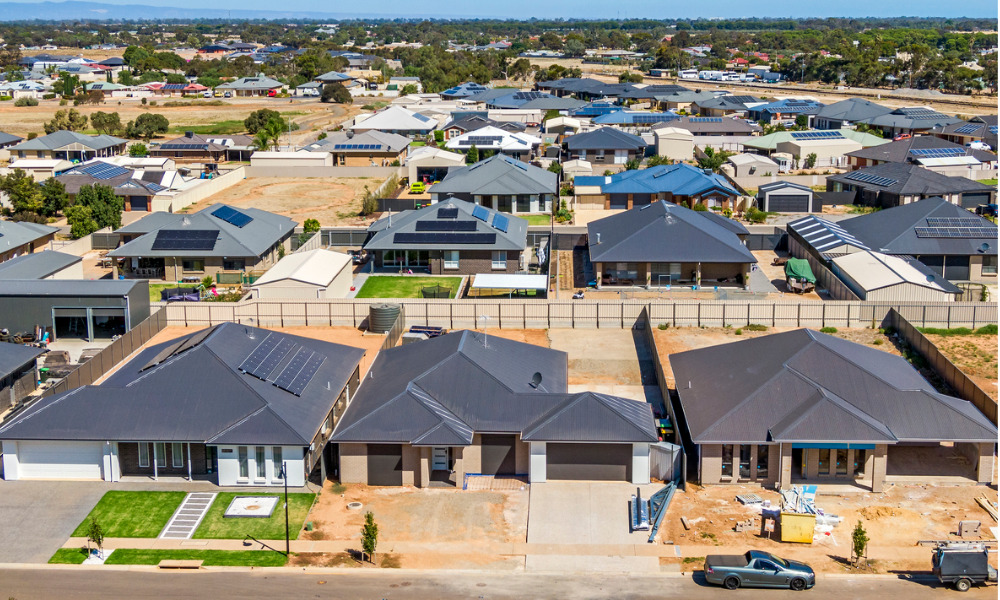Plus: How demand for tenants is changing course after the COVID-19 pandemic

The short answer: House price predictions in the United Kingdom are expected to steadily increase over the next five years. While the COVID-19 pandemic has contributed to the rise (see also: race for space), there are other factors at play. Here is everything you need to know about how we got here—and where we’re headed.
What will happen to house prices in the next few months?
Over the next few months, house prices will likely continue to rise amid the current cost-of-living crisis plaguing the market. House prices rose exponentially since the beginning of the COVID-19 pandemic, which was fuelled by the government’s introduction of the stamp duty holiday.
As Stuart Law, chief executive of the Assetz Group, told Mortgage Introducer last month: “While most people predicted that house price growth would slow as we moved into 2022, I forecasted at the end of 2020 that we would see strong growth not just in 2021, but also in 2022, with both years likely to see increases in house prices at 8-10% higher for new builds.”
Further, the demand for housing was impacted by the COVID-19 pandemic: more people worked from home and more space was required over a long period of time. That, coupled with the economic impact of the pandemic, kept interest rates relatively low, Law explained.
This prediction appears to have come true, with the ONS HPI reporting in July that the average house prices in the United Kingdom increased by 12.4% over the year to April 2022. According to Law, 2023 could see house price growth remain in positive territory due to low supply, but that remains uncertain given other factors.
How the demand for tenants is changing the course after pandemic
In many areas in the United Kingdom the demand for tenants has been vastly outstripping supply after the COVID-19 pandemic. More specifically, cities in the UK are becoming as favourable as seaside towns, with more workers returning to the major centres as the country returns to the new post-pandemic normal.
This trend is the opposite of the beginning of the pandemic, when the urgency to settle in spacious, quieter areas dominated property purchases. A recent study has found that appetite for housing in the UK’s largest cities is on the rise, with competition among tenants for rentals increasing by an average of 29%.
One thing that remains unaffected by the pandemic is the UK housing market’s resiliency and flexibility to the needs of varying market conditions. The housing market in the UK continues to be a critical investment target for many homebuyers hoping to secure assets with strong prospects for long-term growth.
Race for space: Why are house prices so high?
Among the reasons house prices are so high in the UK right now—and only surged throughout the COVID-19 pandemic—are the new mortgage guarantee, the stamp duty holiday, and the so-called “race for space.” One major reason more people in the UK were searching for larger properties was the move to work from home during the pandemic. Compared to a 7.6% increase for flats, the asking prices for detached homes rose by 13.9% in the last year.
Other factors that may make it more expensive to purchase a property include soaring inflation, increasing interest rates, and energy price increases. Since 2021, the Bank of England has increased interest rates a whopping five times. These interest rate hikes will likely be consequential for the housing market.
Will house prices increase in the next five years?
House prices in the UK are expected to increase roughly 16.6% in the next five years. That figure is a five-year cumulative house price growth nationwide, meaning the 8% price growth in 2022 will lead to a 1% growth in 2023, 2% for 2024 and 2025, and 3% for 2026.
The East of England is expected to lead the way in house price growth over the next five years, with an above-average growth of 18.5%. The East Midlands, West Midlands, and South East of England are each expected to increase 18%, 17.5%, and 17.3% respectively. The rental market in the UK is predicted to see a 17.1% increase in rental price during the same time period, which breaks down as 4% in 2022, 3.5% in 2023, 3% in 2024 and 2025, and 2.5% in 2026.



